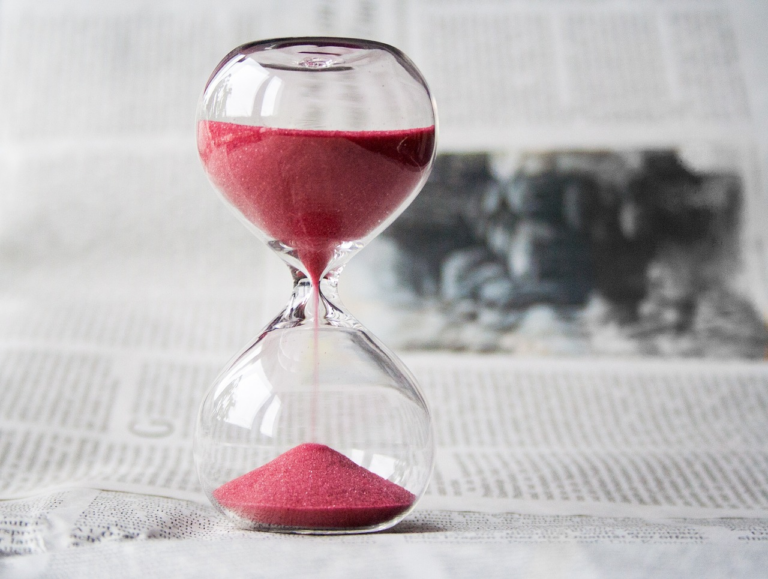
In a world where excess is celebrated and consumerism is the norm, it can be easy to lose sight of what truly matters. We are constantly bombarded with advertisements that encourage us to buy more, consume more, and accumulate more, all in the pursuit of an elusive and ever-changing definition of ‘enough’.
However, this endless cycle of consumption can lead to a sense of emptiness and dissatisfaction, leaving us feeling trapped and unfulfilled.
But what if we were to shift our focus away from material possessions and instead embrace the concept of ‘enough’? What if we were to let go of the constant pressure to accumulate more and instead focus on the things that truly matter in life?
In this article, we will explore the benefits of minimalism and the challenges of resisting societal pressure to constantly consume. Through personal examples of minimalism and an exploration of the concept of ‘enough’, we will discover how escaping the trap of consumerism can lead to a more fulfilling and meaningful life.
The Concept of “Enough”
The concept of ‘enough’ is explored in the article as a liberating and content mindset that allows individuals to pursue more worthy endeavors, contrasting with the pursuit of excess and consumerism prevalent in our culture.
The idea of ‘enough’ is rooted in the belief that once we have accumulated what we need for basic necessities, we should no longer strive for more.
This mindset is freeing because it allows individuals to focus on what truly matters in life, such as relationships, personal growth, and contributing to society.
By finding contentment in simplicity, individuals no longer feel the need to accumulate more possessions or chase after money, which can lead to a more fulfilling and meaningful life.

The liberating effects of ‘enough’ can be seen in the experiences of individuals like Amanda and Leslie, who have found happiness in minimizing their possessions.
By decluttering their homes and letting go of excess items, they have simplified their lives and are now able to focus on what really matters.
This concept of ‘enough’ is also in line with the philosophy of minimalism, which advocates for living with less and focusing on experiences rather than possessions.
By embracing the idea of ‘enough’, individuals can break free from the trap of consumerism and find true fulfillment in life.
Consumerism in Society
In contemporary society, the pursuit of material possessions has become a ubiquitous and insidious force, infiltrating every aspect of our lives like a virus. Advertisers have created a culture that equates happiness with the accumulation of goods and services, leading to a never-ending cycle of consumption and waste.
The harmful effects of consumerism on the environment are evident in the depletion of natural resources, pollution, and climate change. Furthermore, the psychological impact of constantly striving for more can lead to anxiety, stress, and a sense of inadequacy.
Consumerism has also led to a culture of disposability, where products are designed to be obsolete and replaced quickly. This has created a throwaway culture that values convenience over sustainability, resulting in mountains of waste that end up in landfills or polluting our oceans.
The pursuit of material possessions has also led to a widening gap between the haves and the have-nots, where those who cannot afford to keep up with the latest trends are left behind.
In conclusion, the harmful effects of consumerism are far-reaching, affecting not only individuals but also society as a whole. It is time to embrace the concept of ‘enough’ and prioritize sustainability and well-being over the accumulation of goods.
Personal Examples of Minimalism
Several individuals have shared their experiences of minimizing possessions and decluttering their living spaces. Amanda cleaned out her garage and got rid of almost 1000 pounds of stuff, while Leslie began minimizing possessions by going through her closets and filling 4 bags and 1 box with clothes and shoes.
These personal examples of minimalism highlight the benefits of decluttering and simplifying one’s life. In addition to reducing physical clutter, minimalism can also lead to mental clarity and improved focus. By removing unnecessary possessions and distractions, individuals can prioritize their goals and reduce stress.
Decluttering tips such as starting small and tackling one space at a time can make the process more manageable and less overwhelming. Overall, the benefits of minimalism and decluttering can lead to a more fulfilling and intentional life.
Frequently Asked Questions
How can we determine when we have reached the point of ‘enough’ in our own lives?
Defining ‘enough’ involves differentiating between personal and societal standards, considering gratitude and ambition. It requires self-reflection and recognizing when we have met our basic needs and are content, rather than constantly pursuing more.
What steps can we take to resist the pressure of advertisers to pursue excess rather than enough?
To resist the pressure of advertisers to pursue excess, one can practice mindful consumption by evaluating needs vs wants, breaking habits through intentional decision-making, and seeking out alternative sources for information and products.
How can we navigate social situations where others may be flaunting their possessions and making us feel inferior?
Handling envy in social situations where others flaunt their possessions and make us feel inferior requires mindful decision making. Recognize the source of envy, focus on personal values, and gracefully redirect conversations to more meaningful topics.
What benefits have people experienced as a result of minimizing their possessions?
By embracing minimalism and minimizing possessions, people have reported various benefits such as reduced stress, increased focus on important things, improved financial stability, and more time for meaningful activities.
Are there any potential downsides to the pursuit of minimalism and the concept of ‘enough’?
The pursuit of minimalism and the concept of ‘enough’ may have potential downsides, such as neglecting practicality and the impact of consumerism on mental health. Balancing minimalism with practicality is important in avoiding these downsides.
Key Takeaways
- Excess and consumerism lead to emptiness and dissatisfaction
- Pursuit of material possessions harms environment and leads to throwaway culture
- Minimalism advocates for living with less and focusing on experiences over possessions
- Minimalism can lead to mental clarity and improved focus
Conclusion
The concept of ‘enough’ is a powerful tool in today’s society, where consumerism has become the norm. By embracing minimalism and focusing on what truly matters, we can break free from the endless cycle of accumulation and find liberation.
However, the challenges of resisting societal pressure cannot be ignored. It takes courage to go against the grain and choose a simpler way of life.
On one hand, we have the allure of material possessions, the constant bombardment of advertisements and the pressure to keep up with the latest trends. On the other hand, we have the potential for a more meaningful life, where our focus is on experiences, relationships, and personal growth.
It is up to us to decide whether we want to be slaves to consumerism or embrace the freedom of ‘enough’.
In conclusion, the pursuit of excess can be tempting, but the benefits of embracing ‘enough’ are worth the effort. By breaking free from the cycle of consumerism, we can live a more meaningful and fulfilling life. It takes courage and determination, but the rewards are immeasurable.
So, let us choose to live a life of ‘enough’ and find true liberation.





